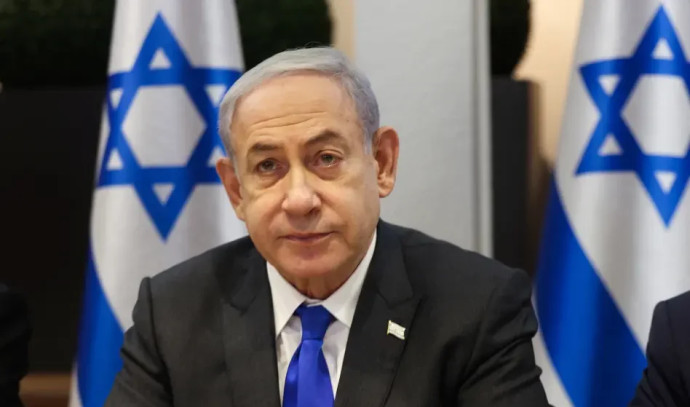Quirks and Quarks19:12An Indigenous ecologist on why we need to stop and listen to save the planet
Indigenous ecologist Jennifer Grenz has spent decades working to protect ecosystems in the Pacific Northwest through restoration and invasive species management. But recently, frustrated by the limitations of her work, she set out on a mission to incorporate more of her Indigenous worldview into her traditional Western science work.
She wrote about this journey in a new book, called Medicine Wheel for the Planet: A journey toward personal and ecological healing.
Grenz spoke with Quirks & Quarks host Bob McDonald about how this process not only helps her be a better scientist, but also a better protector of our planet. Here is part of their conversation.
What set you down this path of changing how you approach your science?
I think it was a lot of ecological angst in myself, someone who had spent almost two decades trying to bring healing to lands and waters, and really just not making the difference I felt like we really needed to.
What did you see as limitations to the Western approach to science?
I think that it really was too formulaic. We approached different lands with sort of a cookie cutter. And so everywhere that we went we essentially did the same thing in terms of ecological restoration. We would get to a place, we’d look around, we’d identify which plants didn’t belong, which invasive species were there. We would do what needed to be done to attempt to eradicate them. And then we would plant native plants in their place, only to come back soon after to find that the weeds were either back, or there were new invasive species there, and that the native species that we planted in their place didn’t make it. And it was just repeat, repeat, repeat.
How are these two ways of thinking at odds with each other?
I think how they end up at odds with each other is just in how we ask research questions, in what we consider data to be, and how we do that analysis. An example would be when I would go out and do vegetation surveys and look at the land and map where invasive species were on a grid, and we had similar methodology anywhere we went. Identify the plants, measure them, understand their abundance. And then when I went into more Indigenous research methodologies, I was told to throw my notebook away. In fact, an elder knocked it out of my hands and told me just to sit, and just be on the land, and watch and observe.

And I think what was really different for me was suddenly I was seeing relationships that I hadn’t noticed before. Suddenly you’re noticing what insects might be munching on some of those same plants you’re trying to manage, or that the soils are actually looking a little bit different in one spot versus another.
How would you explain Indigenous research methodology?
It is rooted in reciprocity, and respect, and relationality — the three Rs as we call them. So when we’re approaching research, we’re working respectfully on the land and we’re working in reciprocity. We’re always asking the question: what are we giving back when we’re doing this work, and then how are we working relationally? Are we really understanding all the relationships around us.
Yes, trees are important, but which trees and in what places? We need to think a little bit deeper about these relationships and what our goals are.– Jennifer Grenz
And then also what we consider data is different. There aren’t any hard and fast rules. We can learn from our children. We can learn from people who frequent areas all the time. I write in my book about how the dog walkers of areas — where they’ve been walking two different generations of their own dogs through a place — they have information that’s useful. That can help us understand what’s happening around us.
But that said, then I find what happens is it generates different kinds of questions, where then we can bring in those Western scientific tools to help us answer those questions.
How would you like to see a change in the current environmental movement?
I feel like the modern environmental movement has gotten things a little bit wrong, and we need to reevaluate what environmentalism means to us. We need to think a little bit deeper about what these systems were, and what we need them to be. We have this very kind of aesthetic relationship with the environment. But is that really serving us? Because now we’re losing biodiversity.

An example of that that I talk about in my book is Garry Oak Meadows, which are very important ecosystems and there are less than five per cent of them left in the Pacific Northwest, that have many rare species and at-risk species in them. But they exist because of fire stewardship, because of Indigenous fire stewardship, keeping canopies open and stopping coniferous trees from moving in. And we can’t use fire stewardship in a lot of places now because neighbourhoods were built all around them on Vancouver Island. Understandably, people don’t want us to light fires. But now we have this closing canopy and we’re losing Garry Oak Meadows because the coniferous trees are marching inwards.
And so there was a case in an area where I was helping to do some management and do research where we couldn’t use fire. So we were going to cut the trees down, to open the canopy back up, and save the Garry Oaks that were being smothered. And there was an uproar in the neighbourhood that we couldn’t cut a single tree down.
So this is what I mean about my criticisms of the modern environmental movement; yes, trees are important. But which trees and in what places? We need to think a little bit deeper about these relationships and what our goals are. And maybe, I think, it comes from a place where we’re sort of on an environmental apology tour. You know, we’ve done so much wrong that has harmed our planet that we then kind of have swung so far the other way that we’ve kind of lost the forest for the trees.
Q&A edited for length and clarity.







